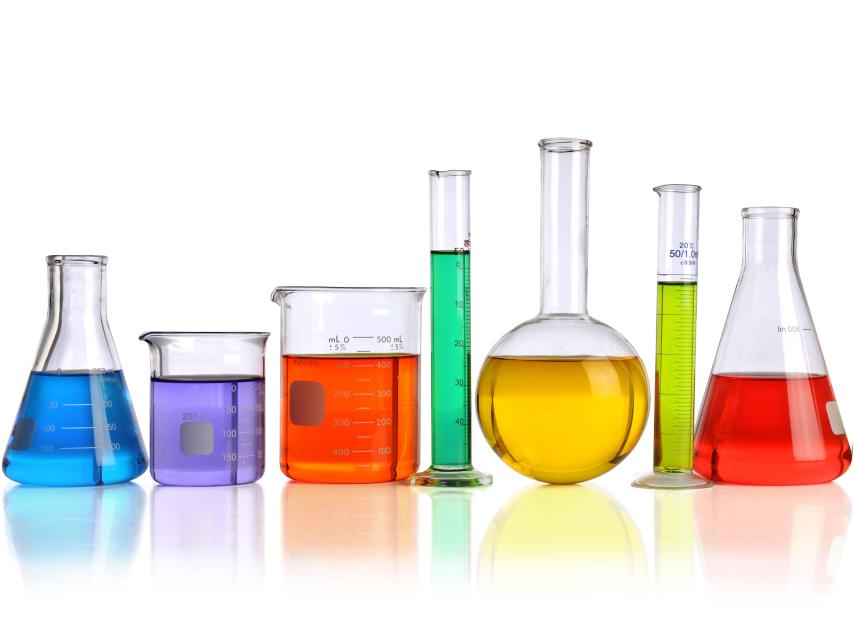Catalyst Inorganic Support Material Testing
In the realm of chemical testing, particularly within the sector of inorganic compound testing, catalyst inorganic support material testing plays a pivotal role. Catalysts are essential components in numerous industrial processes where they accelerate reactions without being consumed in the process. These catalysts often rely on specific inorganic support materials that enhance their performance by providing a stable surface for the active sites.
The inorganic support material is critical as it influences not only the longevity and stability of the catalyst but also its efficiency, reusability, and overall cost-effectiveness. The testing of these support materials involves a series of rigorous procedures aimed at understanding their physical and chemical properties. This includes evaluating surface area, pore size distribution, thermal stability, and mechanical strength.
Surface area is crucial because it directly affects the catalyst's ability to adsorb reactants and products. Pore size distribution impacts how effectively the support material can accommodate the catalyst particles and ensure uniform dispersion. Thermal stability ensures that the support material remains intact under reaction conditions, which are often harsh. Mechanical strength determines the durability of the catalyst during industrial processes.
Testing these properties involves sophisticated instrumentation such as nitrogen physisorption for surface area measurement, mercury porosimetry for pore size distribution analysis, thermogravimetric analysis (TGA) for thermal stability assessment, and tensile testing for mechanical strength. The accuracy of these tests is paramount to ensuring the reliability of catalyst performance in real-world applications.
The scope of this service extends beyond just identifying the properties; it includes ensuring compliance with international standards such as ISO 9771-2:2018, which specifies methods for the determination of surface area and porosity by nitrogen physisorption. Compliance is essential in industries where catalysts are used in regulated processes to ensure safety and environmental protection.
Understanding the context within the broader sector of chemical testing underscores why this service is indispensable. Inorganic compounds, as a category, form the backbone of many industrial applications ranging from pharmaceuticals to petrochemicals. The precise nature of these compounds necessitates meticulous testing to ensure that they meet the stringent requirements set by regulatory bodies and industry standards.
By leveraging advanced testing methodologies, we provide clients with reliable data that not only meets but exceeds their expectations. This service is particularly valuable for quality managers, compliance officers, R&D engineers, and procurement specialists who are responsible for ensuring the integrity of catalysts used in various industrial processes.
Why Choose This Test
The decision to choose catalyst inorganic support material testing is driven by several key factors that ensure the reliability and efficiency of the catalysts used in industrial processes. First, compliance with international standards such as ISO 9771-2:2018 ensures that the support materials meet the highest quality benchmarks. This compliance is critical for industries where regulatory oversight is stringent, ensuring safety and environmental protection.
Secondly, the precision of testing methodologies guarantees accurate data on surface area, pore size distribution, thermal stability, and mechanical strength. These properties are fundamental in determining the performance characteristics of the catalysts. Accurate information allows for the optimization of industrial processes, leading to enhanced efficiency and reduced costs.
Thirdly, the service provides a comprehensive understanding of how different support materials interact with various catalysts under diverse operating conditions. This knowledge is invaluable for R&D engineers who are tasked with developing new catalyst formulations or improving existing ones. It enables them to make informed decisions that can lead to breakthrough innovations.
Finally, by ensuring consistent quality and reliability in the supply chain, this service supports procurement specialists in making strategic purchasing decisions. The data provided helps in selecting suppliers whose products meet the required standards consistently, thereby reducing risks associated with substandard materials.
Quality and Reliability Assurance
The quality and reliability of catalysts are paramount in ensuring consistent performance across industrial processes. The testing of inorganic support materials is a critical step in this assurance process, providing the necessary data to evaluate the stability and efficiency of these catalysts.
Quality managers rely on our service to ensure that every batch of catalyst meets the required standards. This includes not only the properties of the support material but also how it integrates with the active sites of the catalyst. By adhering to international standards such as ISO 9771-2:2018, we provide data that is universally accepted and recognized.
Reliability assurance comes from consistent testing protocols that are applied across all batches. This ensures that there are no variations in performance that could be attributed to inconsistent or substandard materials. The use of advanced instrumentation allows for repeatable results, which builds trust with clients who need to maintain high standards in their operations.
For compliance officers, this service is essential as it provides the evidence needed to demonstrate adherence to regulatory requirements. This data can be used during audits or inspections to prove that processes are compliant and safe. In industries where safety and environmental impact are critical, such proof is indispensable.
Use Cases and Application Examples
| Use Case/Application | Description | Testing Parameters |
|---|---|---|
| Petrochemical Reactors | Catalyst inorganic support materials are used to enhance the efficiency of reactions in petrochemical plants. | Surface area, pore size distribution, thermal stability, mechanical strength. |
| Pharmaceutical Synthesis | Support materials play a crucial role in optimizing reaction conditions for the synthesis of pharmaceuticals. | Surface area, pore size distribution, thermal stability, mechanical strength. |
| Paper and Pulp Industries | Inorganic supports are used to improve the catalytic conversion processes in paper production. | Surface area, pore size distribution, thermal stability, mechanical strength. |
| Environmental Remediation | Catalysts on support materials help in breaking down pollutants more effectively. | Surface area, pore size distribution, thermal stability, mechanical strength. |





